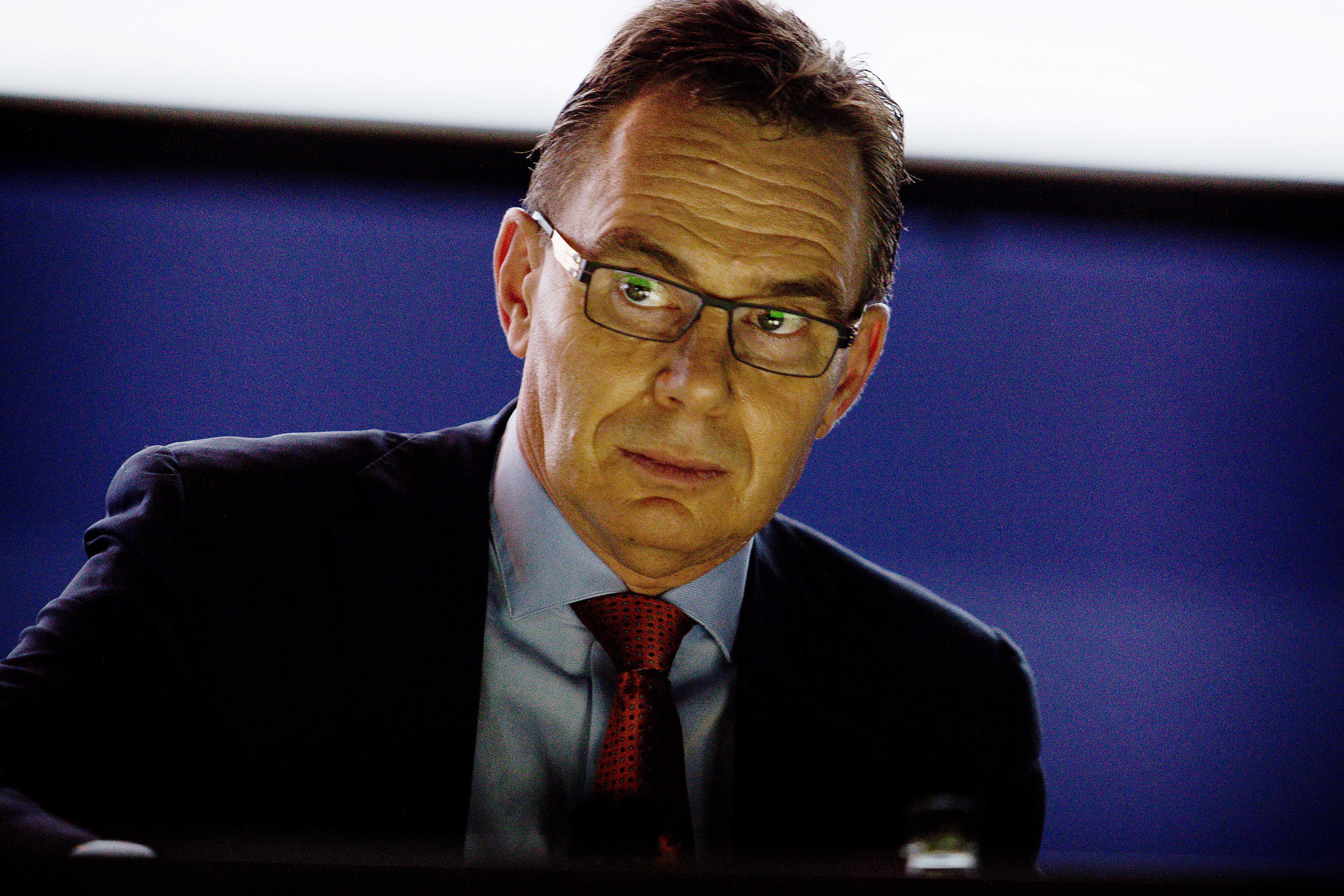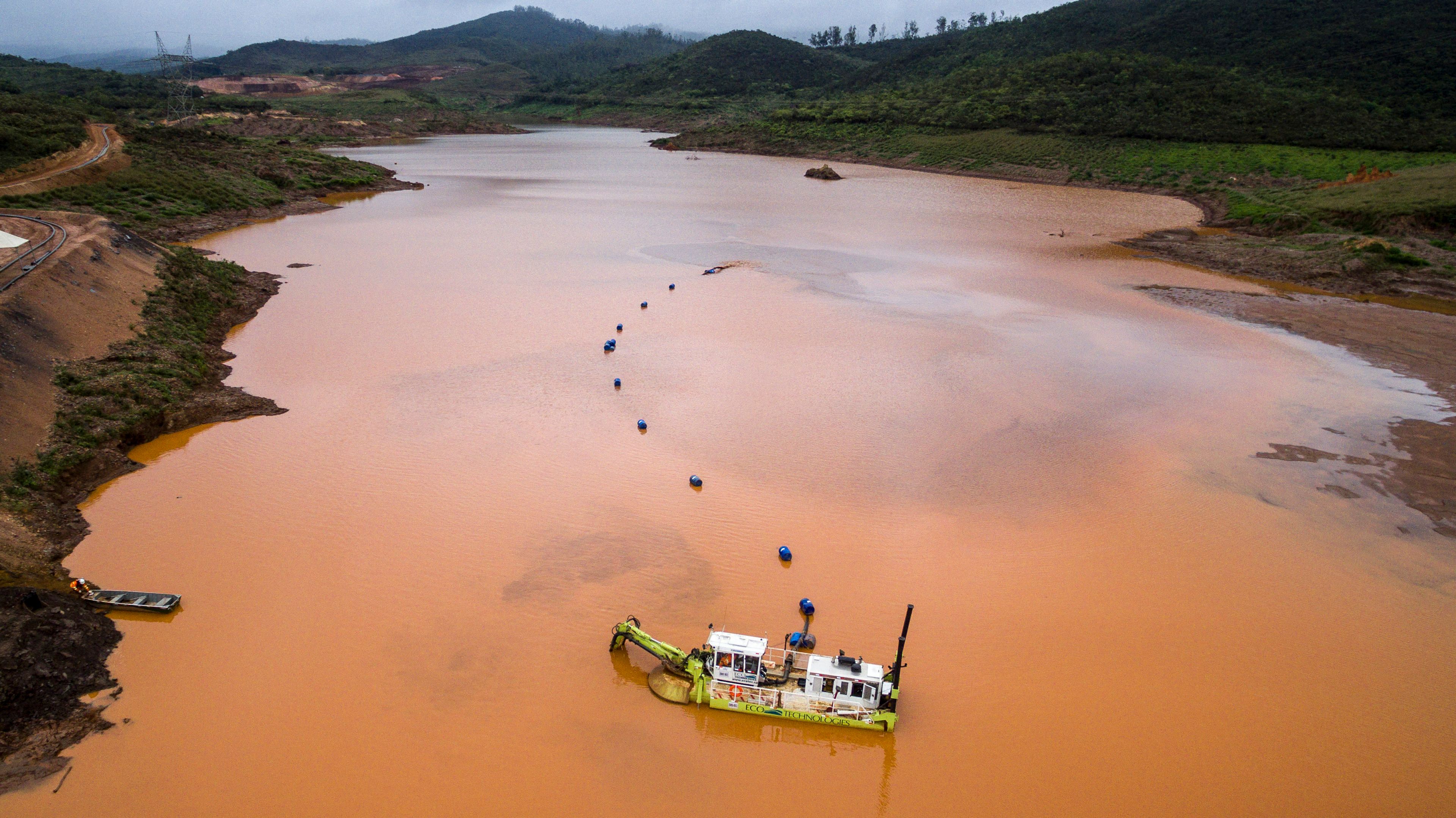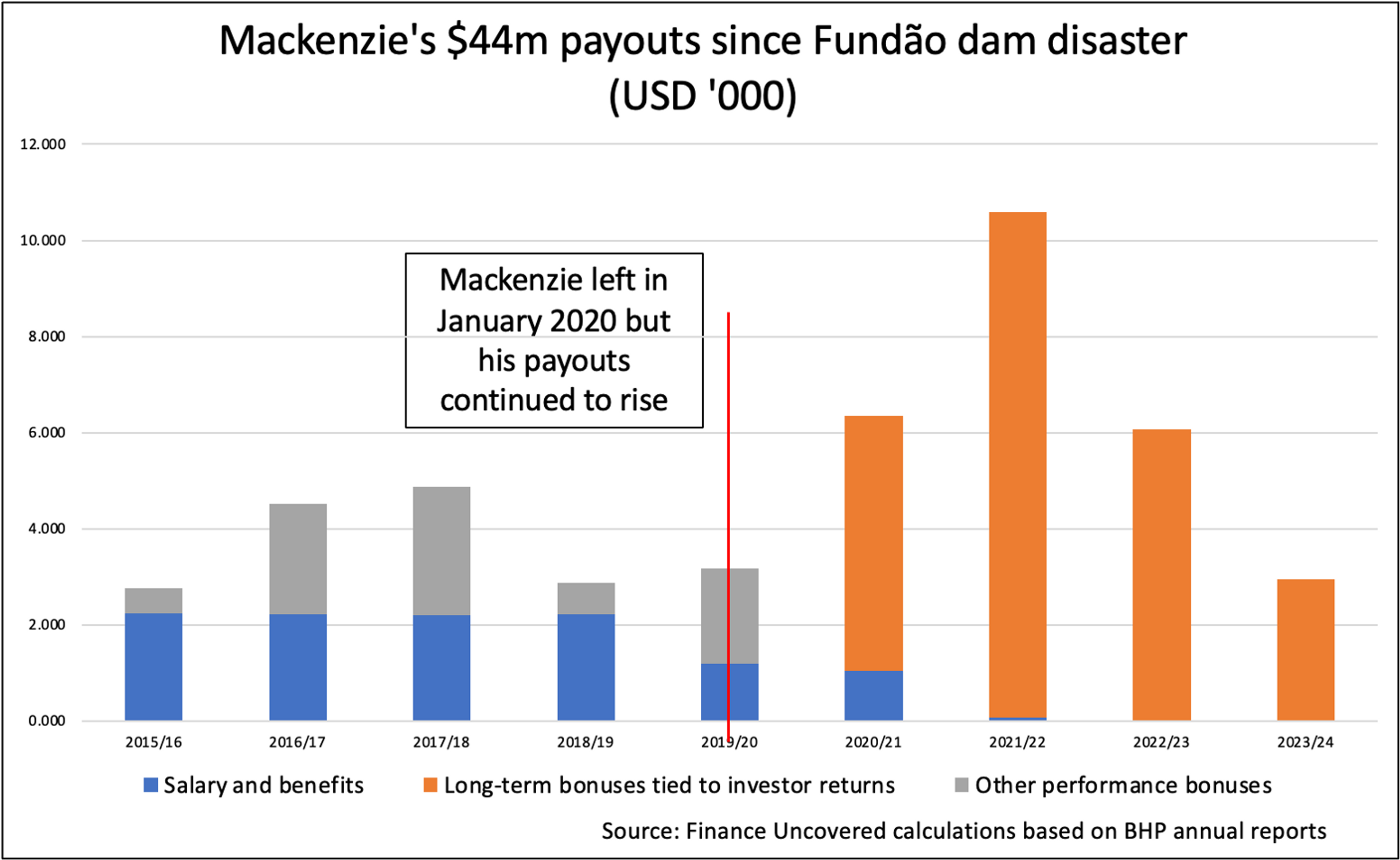Former BHP boss will not face court questions over Fundão dam collapse

Andrew Mackenzie, who nine years ago, as chief executive of mining group BHP, promised to give his “'absolute determination” to helping victims of Brazil’s biggest environmental disaster, will not face cross examination in the witness box over allegations of broken promises, a court has heard.
On 5 November, 2015, the Fundão dam, holding more than 40 million cubic metres of mining slurry, ruptured, sending a torrent of waste materials and liquid mud thundering down the Doce river valley, killing 19 people, washing away villages, and eventually diffusing into a vast, brown plume in the Atlantic Ocean, almost 400 miles away.
In the aftermath of the disaster, Mackenzie gave repeated commitments to local communities on behalf of the mining group. However, he left BHP at the end of 2019 and is now chair of oil and gas group Shell. On his CV, Mckenzie boasts his handling of the dam collapse was a “model for company crisis management.”
Many in Brazil disagree. More than 600,000 victims who say their lives have been turned upside down because of the disaster have taken their claims to the UK courts. Their class action claim for damages of up to £36 billion ($47 billion) started in London last week. They insist their efforts to seek redress in Brazil have been thwarted and slow-walked, not least by a BHP-supported out-of-court compensation process.
The dam and associated iron ore mines were operated by Samarco Mineração SA, a 50-50 joint venture between BHP and Brazilian mining group Vale. Though executives from BHP and Vale made up Samarco’s board of directors, lawyers for BHP have told the court in London that these were governance roles, and that all operational accountability stopped with a team of Samarco executives who reported to the board.

The extent of the disaster from the dam collapse, a year after the catastrophe in Brazil (Photo: Getty)
Lawyers for the disaster victims claim that accountability extends further, right up to BHP and Vale.
In the days after the disaster, Mackenzie flew to Mariana, the nearest town to the dam. Seeming to read from prepared notes, he addressed the local community: “The people of Brazil, the people of Mariana, have my absolute determination that we will fully play our part in helping to rebuild your homes, your community and your spirit.”
Two weeks later, he used the same formulation of words — “my absolute determination” — in a speech to BHP’s annual shareholder meeting in Perth, Australia. “We are deeply sorry to everyone who has and will suffer from this terrible tragedy,” Mackenzie said. “They have my absolute determination that we will fully play our part in helping Samarco reconstruct homes, community and spirit.”
However, BHP’s lawyers will not be calling the 67-year-old Scot as a witness in the trial, which is expected to last several months.
His absence was revealed by Alan Choo Choy KC, the lead counsel for the claimants, in his opening written statement presented in court last week.
Referring to Mackenzie’s personal role in the company’s immediate response to the disaster, Choy said: “With neither his then chairman, Mr [Jacques] Nasser, nor CEO Mr Mackenzie, appearing as witnesses in their own right, it has fallen to Mr [Peter] Beaven [BHP’s former chief finance officer] to explain what he thought his bosses meant when they said in the aftermath of the collapse that BHP ‘must respond in the right way’, that it would ‘fully play [its] part’ and that it recognised that it had a ‘responsibility’.”
Choy’s opening statement mentioned Mackenzie 12 times, and quoted some of the words the former BHP boss had used. Mackenzie, the statement recalled, had said: “In BHP…, we recognise that we have a responsibility to support Samarco and the local authorities in the response effort.”
Mackenzie, the statement added, had also said: “Do let me be very clear: we are 100% committed to doing everything we can do to support Samarco as it works to rebuild the communities and restore the environment, in a way that I think would be acceptable to reasonable men and women.”
The opening week of the trial, held before Mrs Justice O'Farrell at the Rolls Building, part of London’s High Court, was dominated by the opening arguments for the claimants.
There was no explanation in court for why BHP was not calling Mackenzie as a witness.
Outside court, Finance Uncovered asked BHP why it had decided that Mackenzie would not give evidence and a spokesperson for the miner said: “We don't have a statement with regards to this and will not be discussing individual witnesses.”
Finance Uncovered has been unable to reach McKenzie for comment. A spokesperson for Shell refused to pass questions to the group’s chair. saying: “As this relates to Sir Andrew Mackenzie’s work before he became the Chair of Shell, it’s for BHP to deal with rather than Shell.” Meanwhile, a spokesperson for BHP said: “Andrew no longer works for BHP sorry I cannot assist further.”
In addition to the comments highlighted by Choy, counsel for the claimants, Mackenzie has made several other high-profile comments about the 2015 dam collapse.
In 2016, journalists from Australia documentary series Four Corners, asked him whether Samarco had been negligent. Mackenzie replied: “So I can't answer that question right now because we are conducting a very exhaustive investigation of the cause of this accident. There's a wide range of claims swirling around and we need to make sense of them all and come up with… what is the truth.”
The then BHP boss stressed: “I mean, the truth must come out.”
Mackenzie left BHP at the start of 2020 but for the five years between the Fundão dam disaster and his departure, he eventually collected pay and bonuses worth $44.2 million, according to Finance Uncovered analysis published eight days ago. This is despite a 2016 annual short-term bonus being withheld in the wake of the dam collapse.

Mackenzie’s BHP pay included more than $25 million in restricted shares that were quietly released to him over a four-year period after his departure. A further tranche of shares, worth up to $1.1 million, may have been released to him this summer, though BHP declined to confirm this had taken place.
After leaving BHP, Mackenzie was awarded a knighthood in the UK for his services to business and to UK-Australia relations. He was appointed chair of oil and gas group Shell the following year. He also serves as chair of UK Research and Innovation (UKRI), the British government’s multi-billion-pound research funding agency.
In his CV, submitted to the UK parliament as part of his appointment to head UKRI, Mackenzie described how, running BHP from 2008 to 2019, he led a cost cutting drive that transformed the company into the world’s lowest cost iron producer. Mackenzie also said of himself: “His handling of the Samarco tailings dam disaster in Brazil is acknowledged as a model for company crisis management."
Although rights to compensation for victims of the Fundao dam collapse are held under Brazilian law, the UK courts have agreed to hear their £36 billion ($47 billion) class action claim after being persuaded that many victims had not been able to get satisfactory redress in Brazil.
In part, the claimants argued, this was because of obstructive behaviour on the part of the Renova Foundation, a body set up by BHP, Vale and Samarco to resolve victims’ claims without involving the courts.
“Taken at face value [the claimants] paint a coherent picture of widespread inadequacies in the redress available from Renova, within a reasonable time or at all,” he the Court of Appeal ruled two years ago, opening the door to a full trial of the class action claim.
Vale is no longer a defendant in the UK case, having instead agreed to foot half of any damages order imposed on BHP, if the Australian-headquartered miner loses in court.
The case continues.
*Editing: Ted Jeory and Nick Mathiason